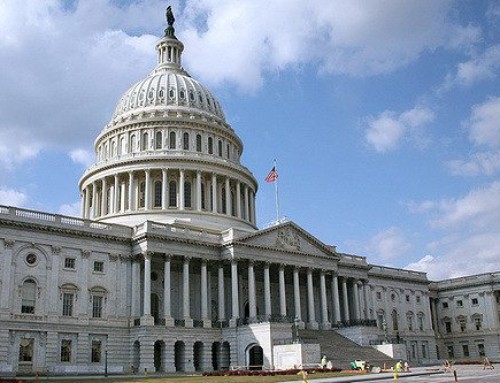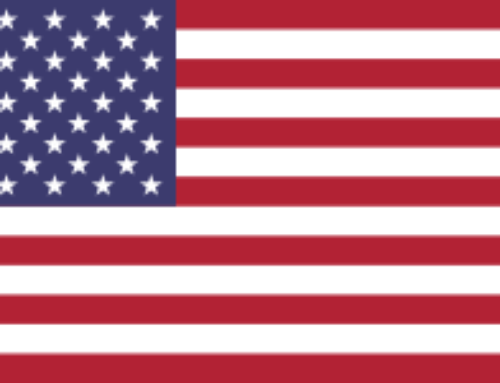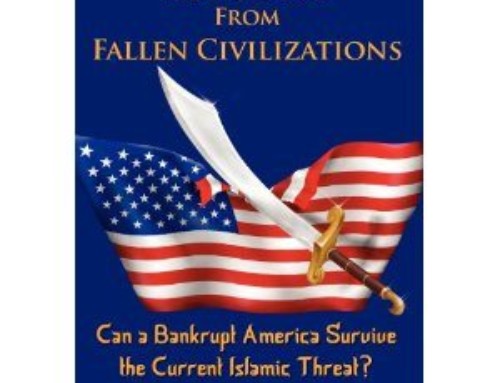“War is not merely a material struggle, but more often a referendum on the spirit.” The brilliant military historian, Victor Davis Hanson, goes on, “ No nation has ever survived once its citizenry ceased to believe its culture was worth saving.” On this year’s July Fourth we are not only celebrating our country’s independence, but we also are contemplating the form and magnitude of the next Muslim attack. And as we watch the government lurch haltingly toward a war footing, and wonder if it can protect us from something much larger than last September, my hope is that the country can summon in us the exceptional devotion to duty shown by a fallen hero, Jean Witter.
When any country is attacked, to overcome its attackers, one of the casualties must be the embrace of outside cultures in favor of unifying the nation. For some of us, it may be arresting to consider that shortly after Pearl Harbor, FDR ordered Japanese-American families, living near the west coast of the U.S, to be sent to inland detention camps. Were he alive today, would FDR condemn his decision? Perhaps. Unlike Japanese immigrants to South America during the 20s and 30s who largely remained devoted to Japan throughout the war, Japanese Americans volunteered in great numbers and fought heroically. But like today, early in the Second World War, there was a justifiable fear that another shoe might soon drop, that being, the Japanese invasion of the United States West Coast.
I suspect that most of us who didn’t live through 1942, may not believe that our civilization is threatened now and because we know the history, similarly tend to see that our winning the second world was inevitable. But in actual fact, in 1942, the U.S. was in a struggle for its survival. Just eight months after Pearl Harbor, the Japanese Empire ran from the Aleutians in the North, down past Wake Island in the Central Pacific to the Gilberts on the equator, to the Manchurian-Soviet border, through eastern China and Burma to India, to the south, Sumatra, Java, New Guinea and the Solomons. Eric Hammel, author of Decision at Sea, the naval battle of Guadalcanal where Jean was killed, writes, “At the close of her first half of 1942, the U.S. Navy had been in a state of unremitting shock for all of seven months…The surface warships of the U.S. navy had lost every battle in which they engaged Japanese warships.”
And similarly to the situation we face today, FDR had to assume that the Japanese had recruited human assets inside the U.S. that were loyal to their ancestral homeland, and that could be counted on to send Japan’s invading armies information relative to U.S. troop movements and concentrations. Because so many boys like Jean Witter would not be coming home, FDR, as does President Bush today, had the sacred and solemn duty to do everything in his power to protect our armed forces as well as civilians. Today we know that we have an enemy among us.
As he stood in the dark with the other officers in the Navigation Bridge of the USS San Francisco, in preparation for one of the most historic naval battles in U.S. history, what must have been Jean Witter’s last thoughts as midnight on the tropical ocean turned into November 13th, 1942…Born to the founder of what became an international brokerage company, he grew up in Piedmont, was his football team’s quarterback and captain, played on the field that would one day would bear his name…His high school classmates voted to extend him the Optimo Award, the highest honor they could bestow on one of their own…Went on to Cal, while a brilliant student, became one of the most acclaimed rugby players in the nation… a “bench player,” came in to block a Frankie Albert punt in the big game against Stanford to win the game…six months after Pearl Harbor, he graduated an Ensign in the Navy, married his beautiful high school sweetheart, Beatrice Church and, ten days later, shipped out to the war in the Pacific.
Jean’s ship was the flagship of a 12 vessel convoy commanded by Rear Admiral Callaghan of Oakland who was considered, at the time, one of only a few of our “fighting naval commanders.” Their orders were to first sail into the waters off Guadalcanal, and defend another convoy of U.S. ships that were off loading fresh reinforcements and supplies to the men still holding the island and second, to engage the Japanese surface force that our intelligence service, having broken the Japanese code, had told them would be coming in force to massively bombard the island in advance of landing huge numbers of men to retake it. Jean and his other officers knew that four months earlier, just two days after the Marines were ashore on Guadalcanal, Japanese ships appeared undetected in the cover night in these same waters, and in 40 minutes, inflicted one of the worst military defeats in U.S. history, sinking four of our ships, crippling another, killing over 1,000 men. Records of Roosevelt’s 1942 communiqués to Churchill and Stalin reveal that he was preparing them for the likelihood that we would lose our only beachhead inside the Japanese empire. These were desperate times. One of the men whose life Jean’s convoy likely saved was the great author and biographer, William Manchester who wrote about the Guadalcanal land battle in his memoir, Goodbye, Darkness.
…At 1:52 a.m. one of Callaghan’s forward ships began to exchange fire with the forward cruisers of a Japanese convoy of much superior weaponry. To the terror of many of the Americans manning their battle stations, among the many enemy ships appearing on the horizon, out of the dark appeared the enemy flagship, the enormous Hiei, carrying batteries of huge 14-inch guns. It was with these guns loaded with incendiary shells that the Japanese were intending to reduce the American encampment around Henderson field to dust. The last words that Jean heard were likely Admiral Callahan’s. As the San Francisco set its course toward the Hiei, and began exchanging fire, he blurted out, “We want the big ones! Get the big ones!” Moments later, at least one of the 14” rounds fell directly upon the navigation bridge, killing all the officers there including Callahan and Witter.
As we contemplate and honor one American hero, Jean Witter, it’s important now to take stock of his heroism because it just may befall our nation the task of ridding the Muslim world of weapons of mass destruction, a task that may ultimately prove as costly as winning the second World War on two fronts, on opposite sides of the earth. We also now know the enemy is both abroad and among us and that they, unlike their previous Kamikaze brethren, seek to kill civilians and bring the war here. President Bush recently told our hesitant allies in Europe, “ We face an aggressive force that glorifies death, that targets the innocent, and seeks to murder on a massive scale.”
It seems utterly inevitable for those who want to avoid more horrendous losses at home to also surmise now, that a new national resolve will be needed, that more-modern, but equally extreme measures may be needed and soon. The Homeland Security office will likely need to contract with high-tech consortiums to employ database merge and search methods that will utilize data mining software and systems that can scan mountains of transactions to find suspicious users. Given the weapons now in the hands of rogue states, these measures combined with special war powers for law enforcement, common-sense population sampling, and military-controlled borders may be necessary for the nation to survive. In advance of this year’s Independence Day, I stopped to look at our War Memorial where Jean’s name is enshrined and counted the 72 other Piedmont boys who, in the four wars of the twentieth century, didn’t come home. I paused to remember them, to wonder and then to hope that the nation will summon, in sufficient numbers, heroes like Jean Witter.



